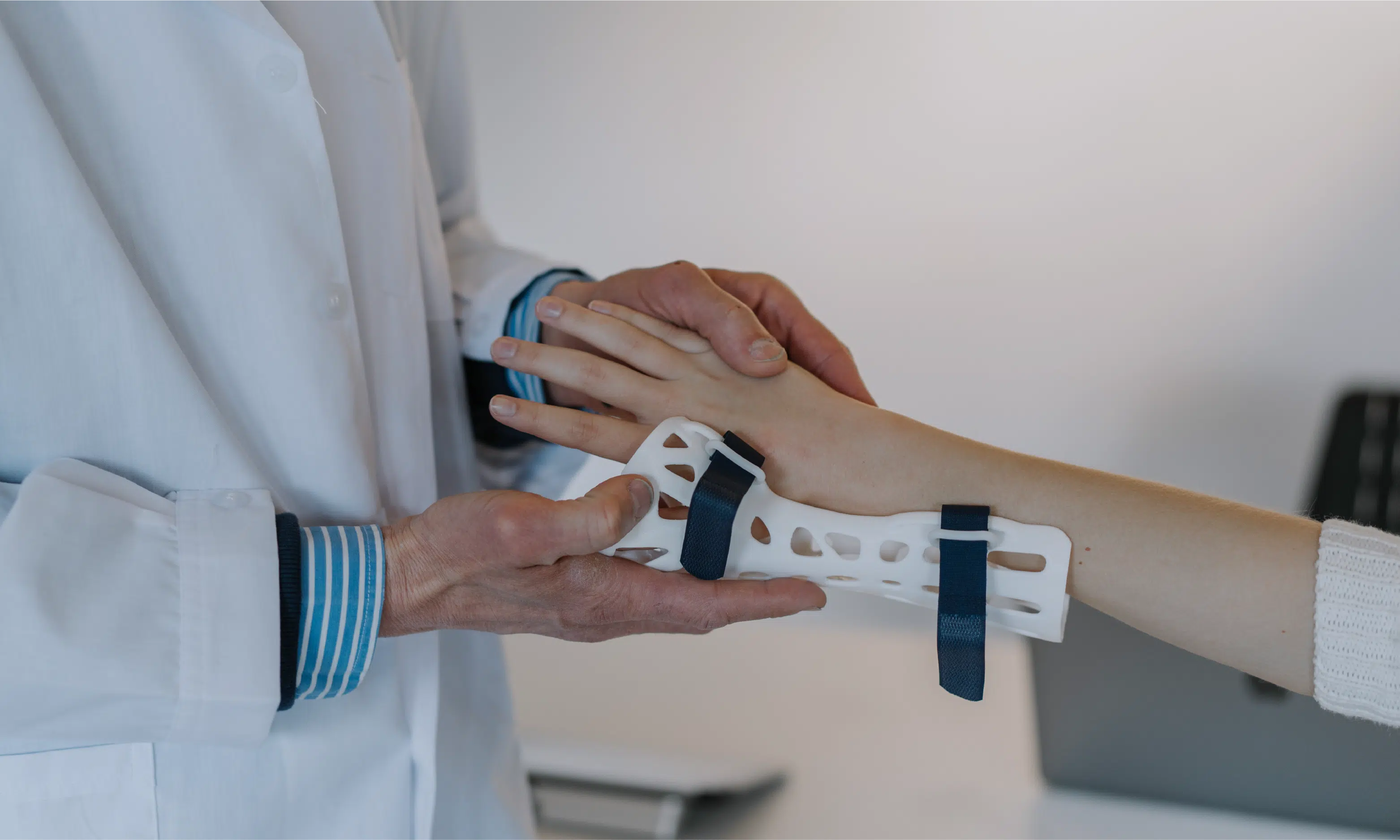How Do I Get Treatment After an Accident If I Don’t Have a Primary Care Physician?

Getting medical attention is at the top of the list of things to do after a car accident. When someone is hurt, EMTs will give first-aid at the scene and if necessary, an ambulance will transport the patient to a hospital. Once released, either by the EMTs at the crash site or from the ER, victims are almost always encouraged to see their primary care doctor in case there is a need for additional treatment. But how does someone get treatment after an accident if they don’t have a primary care physician? And is it absolutely necessary?
Why Follow-Up Care is Necessary After a Car Accident
Ignoring the advice to get follow-up care is a bad idea for several reasons. First, it is the best way to have a full recovery (or as close as possible to a pre-accident condition). Even if they have some pain and stiffness after an accident, many people might assume they are fine. After all, the trauma of a crash can result in soreness that goes away within a few days.
If pain lingers or intensifies, it could indicate that the person’s injuries were worse than they originally thought. And some symptoms of injuries may not show up until later. It is best to be cautious and accept medical treatment at the scene when it is offered, and follow instructions for after-care such as seeing a physician, to make sure that healing is progressing properly.
The second reason for follow-up care is that medical records are an essential part of filing a claim or lawsuit to get full compensation after an accident. If a crash is someone else’s fault, the victim will need a doctor’s notes to prove the extent of their injuries and the treatment needed to “make them whole.”
Isn’t Emergency Care Enough?
If a person without a primary care physician goes to the emergency room after an accident, they might think the treatment they receive there is enough. If they have a minor injury, such as a cut requiring a few stitches or a possible broken bone that needs an x-ray, that might be the case.
But ER doctors’ job is to stabilize a patient and treat their immediate needs. Let’s say an x-ray shows a dislocated shoulder. They will guide it back into place, but it is up to the patient to see a physician about scheduling physical therapy to regain the normal range of motion.
Or, if a patient complains of back pain, the ER will, for example, usually opt for an x-ray to make sure there are no broken bones, rather than an MRI which could show a herniated disc. They typically do not attempt to diagnose possible long-term or lingering effects the patient might suffer from as the result of a car accident.
How an Attorney Can Help You Find a Doctor
When a person causes a car crash, they are responsible for the damage, including the injuries to any victims. It is a good idea for victims to consult with an attorney about the case. Not only will they act on the victim’s behalf to collect compensation from the at-fault driver and their insurance company, but they can also be instrumental in making sure they receive the medical care necessary to achieve a full recovery.
Here at Hipskind & McAninch, we have numerous contacts in the medical community—including specially trained physicians who understand traumatic injuries and the intricacies of dealing with auto insurance companies.
This is good news for someone who does not have their own doctor to visit. Attorneys like us can arrange the necessary appointments and tests for a car accident victim. Not only will this get you on the road to recovery, but it will also provide the documentation needed to file a claim.
Why Seeing a Specialist Might Be Better Than a Primary Care Physician
Not having a regular doctor is not necessarily a bad thing after an accident. In fact, it is often better for a victim to see a specialist—even if they do have a primary care physician. Here’s why:
They specialize in traumatic injuries. A regular family doctor is good at treating colds, flu, diabetes, or hypertension. Most general practitioners, however, do not see a lot of accident-type injuries on a regular basis. They may not have experience with whiplash or spinal injuries, but an orthopedic doctor, a neurologist, or a chiropractor will.
They will start immediate treatment. Often a primary care physician will take a “wait and see” approach, especially when it comes to pain. They may prescribe something and ask the patient to return in 30 days for a re-assessment. An insurance company or attorney for an at-fault driver will use a lag or gap in treatment like that to claim the injury was not caused by the accident. The right doctor will order tests such as an MRI and start physical therapy right away.
They know what information to document. Insurance adjusters will argue that a lack of medical records is the same as a lack of evidence. Doctors who specialize in accident injuries know exactly what terminology to use in medical documents so that they show the necessary proof.
They work with auto insurance rather than health insurance. Primary physicians are used to submitting claims to a health insurance company. Accidents, however, need to go through car insurance companies. Doctors who deal with crash victims understand this and are willing and able to file the proper claims information.
They can wait for payment. Doctors who see accident victims know that the patient may not have money to pay them until they receive compensation from the insurance company or from a lawsuit if one is necessary. They are often willing to defer payment until that happens, and then, the attorney may take care of the expense for the victim by paying the doctor out of the awarded damages.
They are willing to testify. If the car accident case goes to trial, these doctors have experience with depositions and testifying in court. They know they may be called as an expert witness to help the victim prove their injuries and get the compensation they deserve.
Why a Primary Care Physician Might Turn You Away
Many people who have a primary care physician are shocked when their doctor refuses to treat them after an accident. It is surprising, but it happens all the time.
Their decision is based on all of the previous reasons. They do not necessarily have experience with the types of injuries suffered, the treatment schedules, or the insurance documentation that is necessary. Their medical practices do not have the time to deal with auto insurance companies or possibly be called to testify in court. They are often more than happy to hand their patient’s care over to one of these specialists for treatment that is specific to the accident.
Get Treatment After an Accident, Even Without a Primary Care Physician
Not having a regular doctor should not keep you from getting the proper medical care after an auto accident. Seeking treatment should be the primary concern no matter what. At Hipskind & McAninch, we can put you in touch with a specialist who will help you through the healing process.
Category:
Tags:
auto accident, auto accident injury, injury treatment, medical treatment

